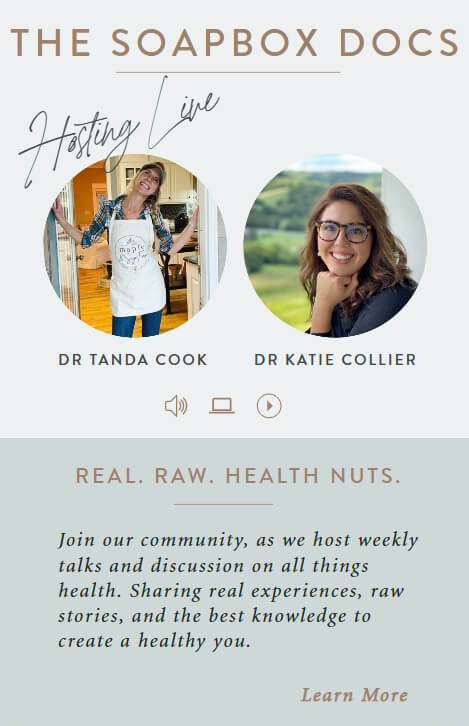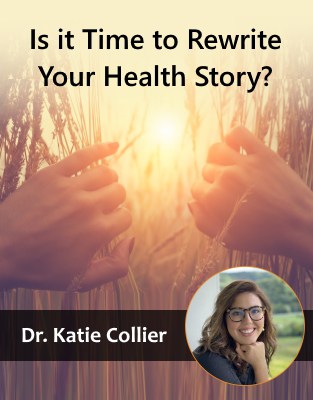It’s estimated that 75-90% of all primary care visits are related to stress. But when the doctor tells you that you need to better manage stress to lower your blood pressure, what does that really mean?
It’s possible that images of a white sandy beach with a pina colada in hand come to mind. The promise that more vacations, more work-life balance and more money will help you chill out and lower stress levels.
I’m in full support of more vacations and the occasional pina colada on the beach, but the reality for most us is that these moments come few and far between, entirely too sparingly to make the profound shifts necessary to heal disease.
Are you leaving the doctor’s office feeling stressed out about how you’ll manage your stress?
What is stress?
Stress, as we will define it here, is the measurable biological and physiological change that occur in the body when exposed to a real or perceived threat to one’s well-being. This can occur in the form of infection, inflammation, emotional triggers or traumas either real or perceived, amongst others. It’s important to note that these measurable, objective changes can occur with or without one’s awareness that they are occurring, making it very difficult to be subjective about your personal stress levels. In fact, many of us living in the western world have been conditioned to tune out our gut feelings, suppress our emotions, and fake it til’ we make it. Over time we become so accustomed to the chronic stress we are under that it becomes normal.
Stress comes in all shapes and sizes and the concept of chronic stress as I will describe it here may be surprising to many of you. For the purpose of this article I will delineate between physical and emotional stress but bear in mind that the body is one unit, inseparable from the mind.
What happens to the body, happens to the mind.
As it is commonly understood, most of my patients consider stress to be emotional and involving the nervous system. It’s associated with feeling agitated, frazzled, out of control, overwhelmed, and anxious. Some of us do experience stress this way, but the stress response that occurs in the body neurobiologically involves much more than the nervous system.
It’s a complex system involving hormones, the immune system, the kidneys, blood vessels, and the digestive tract to name a few. Any one of these systems can be affected by stress with or without the nervous system relaying the message in the form of anxiety. Meaning it is entirely possible, and probable, that your body is experiencing the effects of stress without your knowledge.
If your body is stressed, you will be too.
Physical stress can either have a net positive or net negative impact on the body.
Exercise is a good example of a net positive stress. Initially the activity is quite stressful to the body leading to the breakdown of muscle fibers, lost energy stores, and intense cardiovascular and respiratory effort. Yet, the impact of exercise is overall beneficial to you as it makes you stronger, builds cardiovascular fitness, and makes you more metabolically efficient.
Unfortunately, there are many more examples of negative physical stressors, namely smoking, alcohol, ultra-processed foods, air pollution, heavy metals, injury, and infection.
The primary cause of chronic physical stress in modern culture is inflammation. Each of the listed stressors above cause inflammation in the body. Which would be ok if you were only exposed to one of the items on that list every now and again, but the reality for many of you is that you are exposed to most, if not all, of the items on that list, every day, multiple times a day, for years on end.
Inflammation is a natural process by which the body heals itself after being damaged. It is a mechanism mediated by the immune system in order to provide the nutrients needed to heal an injury incurred in the body. The problem is not inflammation itself, but the chronic activation of the inflammatory pathway. Ideally a stressor is encountered, the body becomes inflamed to heal the damage, the stressor is removed and then the anti-inflammatory pathway can be initiated to complete the healing cycle. Given that we engage with inflammatory physical stressors daily it’s a rare occurrence that the cycle is ever completed. This is when stress becomes chronic.
It’s critical then that we consider physical stressors in the discussion of stress management. You may not always have control over situational stress in your life at work and with family, but you do have choice around the foods you eat, whether or not you smoke or drink too much alcohol, if you exercise, and the chemical burden of your cleaning supply closet.
Your Perception Is Reality
Emotional stress is just as impactful to our physiology as physical stress. Like I mentioned earlier, it’s impossible to separate the mind from the body. However, the difference between emotional stress and physical stress lies in the fact that the physiological response initiated in the body by an emotional stressor is relative to the person assigning meaning to the event whereas the impact of eating a diet of predominantly processed foods, second hand smoke, and alcohol are relatively consistent between person to person.
Consider two students who have both received a B on a paper. One student might be delighted at the achievement while another, whom has placed much of their worth on academic achievement, may be devastated by the less-than-perfect mark.
It’s rarely the event itself that causes the emotional response, but the meaning assigned to the event by the person experiencing it.
For example, if while giving a presentation at work you were interrupted by a colleague one interpretation might be that she didn’t respect you and purposefully interrupted you in front of your boss, another may be that she was inspired by your presentation to share an idea and did not realize she had interrupted, a third yet may be that she often interrupts people and is working on this in therapy. Almost always, we choose the interpretation that best mirrors our own personal beliefs about the world and about ourselves. This is why the meaning assigned to an event, and the intensity of an emotional response, can differ so drastically between individuals because we are differently informed by our personal histories.
The relevance of this lies in the fact that most people are unaware of how impactful our early experiences are in informing the meaning we assign to life events large and small. It’s a profound hidden source of stress that can be either unconscious or conscious and actively avoided given our propensity to avoid emotional pain and “not be so sensitive.”
Whether or not we are aware of the limiting beliefs we have about ourselves and world, they are an incredible source of stress in our body.
This translates to measurable physiological markers of stress in the body like altered hormone function or suppression of the immune system which in turn impacts every organ system in the body. Nothing happens in the body without a hormone at the helm, which is why signs and symptoms related to stress are so varied.
Because our bodies can’t communicate to us through spoken or written language, it must use signs and symptoms to convey messages about the state of its internal world.
Each ache and pain, upset stomach, and diagnosis is an opportunity to more deeply examine your life and make changes that better support the body as a whole.
This does not mean that you can wave a magic wand and get rid of all the stress in your life, but it does mean you can be more intentional about the overall stress load you carry each day. A short meditation, an acknowledgement about how you are feeling, some vegetables, and time spent in nature are simple tasks that provide powerful protection against the stress you will inevitably face. The key is to build internal resilience such that you are less impacted, less activated, and more at peace.
Your body is talking to you, are you listening?
References
- https://jamanetwork.com/journals/jama/article-abstract/209083
- https://onlinelibrary.wiley.com/doi/10.1111/j.2044-8341.1970.tb02109.x/full
- https://www.ncbi.nlm.nih.gov/pmc/articles/PMC3926772/
- https://europepmc.org/abstract/med/12821012
- https://www.ncbi.nlm.nih.gov/pubmed/28061967
- https://www.ncbi.nlm.nih.gov/pubmed/27999087
- https://www.ncbi.nlm.nih.gov/pubmed/26580313



